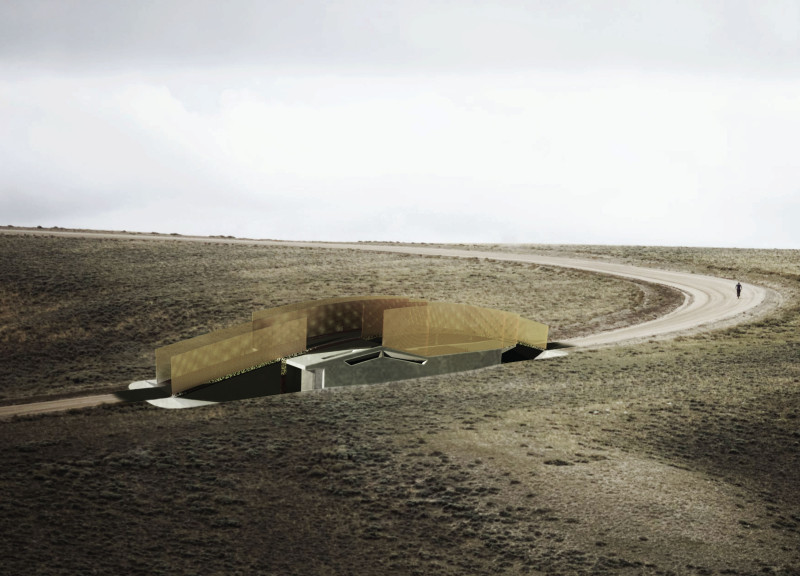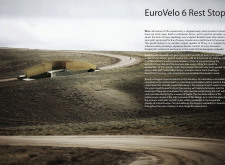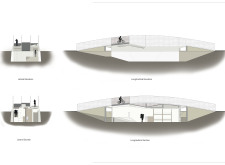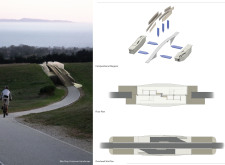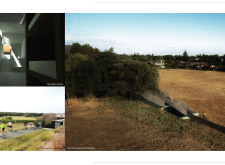5 key facts about this project
The EuroVelo 6 Rest Stop is an architectural project designed specifically to serve cyclists traversing the EuroVelo bike routes in central Europe. The facility enhances the travel experience by providing essential amenities in an environmentally sensitive manner. The project represents modern architectural principles that intertwine functionality with sustainability, offering a practical retreat for users along their journey.
The primary function of the EuroVelo 6 Rest Stop is to serve as a resting area, equipped with necessary facilities such as restrooms, information kiosks, and seating areas. The design emphasizes accessibility and user comfort, ensuring it fulfills the needs of a diverse range of cyclists. Located strategically along the bike path, the rest stop facilitates convenience while promoting an enjoyable experience in nature.
The architectural design of the EuroVelo 6 Rest Stop incorporates several unique approaches that differentiate it from conventional rest areas. One of its most notable features is the subterranean design, which allows the structure to blend into the surrounding landscape. This design choice minimizes visual disruption and reduces the building's environmental impact by using earth's natural insulating properties.
Another distinct aspect of this project is its materiality. The predominant use of rammed earth as a construction material not only enhances thermal efficiency but also connects the building visually and environmentally to the ground it occupies. Additionally, the integration of solar panels in the roof design underscores a commitment to renewable energy, aiding in the reduction of the facility's carbon footprint.
The layout of the facility is modular, which allows for flexibility in accommodating various user needs. This adaptability ensures the space can be effectively utilized for multiple purposes, making it suitable for a wide range of visitors. Natural light is maximized through strategically placed glass elements, providing a bright and inviting interior while minimizing energy costs.
The EuroVelo 6 Rest Stop exemplifies a thoughtful architectural response to the growing demand for sustainable recreational facilities. By focusing on harmony with natural surroundings, accessibility for all users, and responsible material choices, this project outlines a clear vision for modern architecture that prioritizes environmental stewardship.
For those interested in a detailed exploration of this architectural project, the architectural plans, sections, and designs reveal deeper insights into the design ideologies and practical implementations that define the EuroVelo 6 Rest Stop. Engaging with these elements provides a comprehensive understanding of how thoughtful architecture can enhance not only functionality but also the overall experience of its users.


